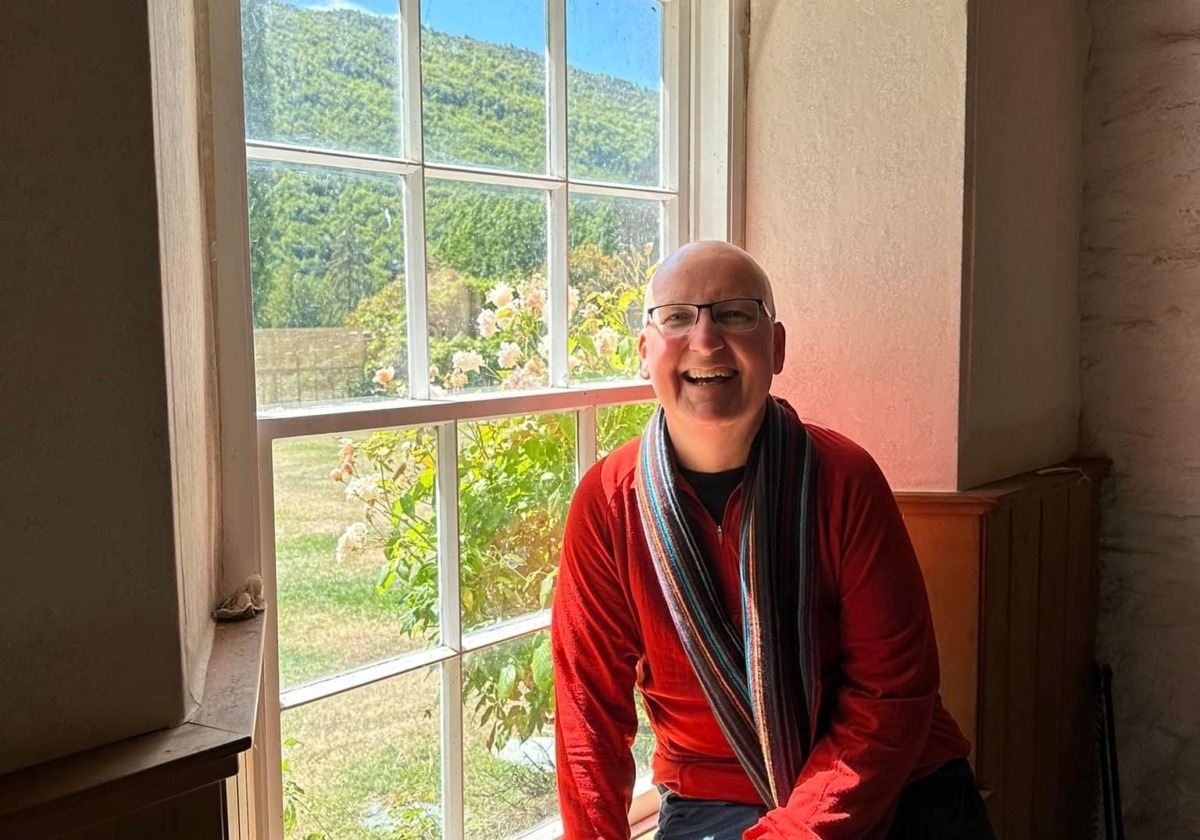David
David Catterall was first diagnosed with cancer just weeks before becoming a Catholic priest, aged 27.
He never could’ve guessed how illness would shape his ministry.
“In 2025 I celebrate my silver jubilee of my ordination as a Catholic priest, when first diagnosed with cancer just prior to my ordination I asked my oncologist at the time about my prognosis. He said, ‘Well David, we really don’t know’. I’d been diagnosed with breast cancer and that was really rare for young males at the time, but now I look back on that and think well, God had a plan. The Lord has put me in places I never expected to go.”
Fr David says that through him, God has reached people in oncology waiting room chairs as much as in church pews.
David has been very open about his health struggles—first undergoing a radical mastectomy and months of therapy, then in 2014 he was diagnosed with non-Hodgkin’s lymphoma and in 2017, early prostate cancer. In September 2023, it was found the cancer had spread to his lungs.

In October 2024, Fr David was diagnosed with Acute Myeloid Leukemia, and began another course of chemotherapy.
Now that Fr David has been matched to an overseas donor, it is hoped that he will undergo a blood stem cell transplant in an attempt to cure the disease.
“It’s incredible to think that someone, somewhere in the world, could be the reason I get to live a longer, fuller life.”
Each year, over 1100 Australians like David search for a genetically matched stem cell donor. More donors on the registry means more hope for patients facing life-threatening blood cancers and disorders.
“If you’re 18-35, I encourage you to sign up to join the registry. You could be the lifesaving match for someone like me”.

What do I need to know before I sign up?
Stem cell donation is a safe and simple process that can potentially cure life-threatening diseases. Before you register, it’s important for you to have a good understanding of what it means to be a donor and ensuring you’re committed, should you be someone’s life-saving match.
Eligibility check:
- You’re aged 18-35.
- Generally healthy (we’ll cover this in more detail in the next steps).
Signing up means:
- You’re committing to donate to anyone, globally needing a match.
- You’re committed to being available if called upon.
- We’ll stay in contact, keeping you informed and ready for the call.
Donation likelihood:
- Matches are rare; they are based on genetic compatibility.
- BUT while not everyone will donate, your registration increases chances for those in need.
If you’re a match:
- We’ll call you to let you know!
- Donation involves a simple procedure with minimal discomfort.
- We support you throughout, ensuring top medical care and thorough information.

Join Fr David's appeal
Important Information
We’re incredibly grateful for everyone who wants to make a difference by joining our registry. When it comes to donating stem cells, younger donors are preferred because they lead to better outcomes for patients. This focus on young donors helps us ensure that the patients’ transplants have the best chance of success.
While we do keep donors on the registry until their 60th birthday in case they become the perfect match for someone in need, we have to be mindful of our limited resources. Our priority is to engage those who can provide the greatest potential for successful transplants, which is why we encourage those aged between 18 and 35 years old to register.
If you’re outside this age range, please know that your passion and willingness to help are valued, and we appreciate your support in spreading the word about the importance of donating stem cells. See our How to help section for ways you can help our mission.
We understand that you may want to help a loved one who is unwell, and it’s natural to want to make a difference in their situation. However, when you register as a donor, you’re committing to help anyone in need of a stem cell transplant.
Unless you share the same parents, the chances of being a match for your loved one are very slim. Instead, by joining the registry, you have the opportunity to assist someone else who may be facing a similar situation to what your loved one is experiencing.
Your decision to register means you could potentially save the life of someone you’ve never met—someone who, like your loved one, is in need of support. While it might not be for your friend or relative, your willingness to help can make a significant difference in the lives of others in need.
If you match a patient, you will be contacted to confirm that you are healthy and still willing and available to donate. A blood sample will be taken to confirm the match.
Before donating, an independent specialist will assess you medically, explain the process thoroughly and answer any questions that you may have. Your health and well-being before and after donation are equally important.
Find out more about the donation process.



